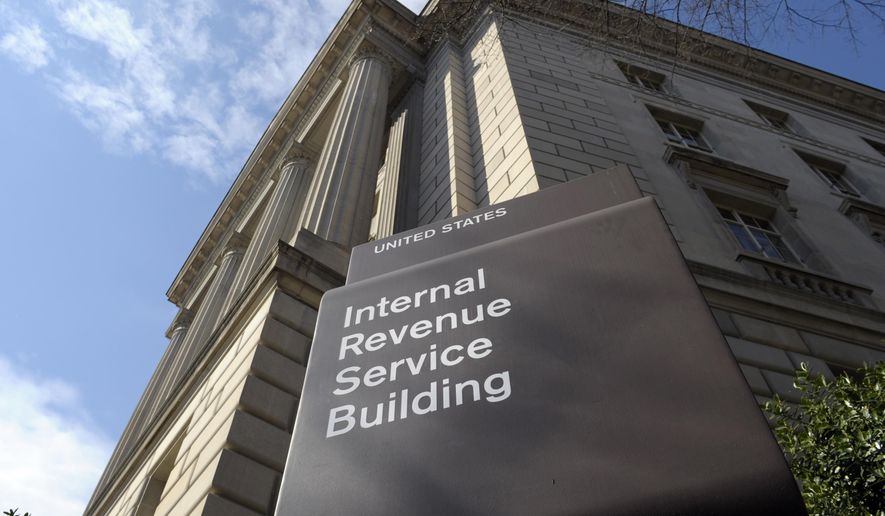President Biden’s proposed tax hikes and plan to hire more than 80,000 additional Internal Revenue Service agents could wind up helping the super-wealthy to avoid paying their fair share, according to a new analysis.
The new system of tax hikes and credits that Democrats are championing in the $1.75 trillion social welfare and climate bill would also complicate the tax code and make enforcement difficult, said a report Thursday from the libertarian Cato Institute.
The new complications, irrespective of beefed-up enforcement, do nothing to close the gap between taxes owed to the federal government and the amount actually paid, said Chris Edwards, the director of tax policy studies at Cato.
“The Democrats want to increase IRS enforcement to reduce the tax gap, but their tax plan would increase tax-code complexity resulting in the opposite,” he said. “Tax‐code complexity increases tax avoidance and evasion by making IRS administration more difficult and by prompting taxpayers to combine disparate provisions in unexpected ways.”
A bloated tax code and IRS bureaucracy only make it easier for the super-wealthy to pursue avenues for tax avoidance. A prime example is the wealthy using loopholes and deductions to lower their overall tax burden, he said.
Economists say that added enforcement does little to solve the problem. Instead, it only incentivizes the wealthy to pursue litigation, at significant cost to the taxpayer, until an appropriate settlement is reached. In most cases, the cost of the settlement and legal fees is still significantly smaller than the initial tax burden.
Further complicating tax enforcement is the hundreds of new tax credits and deductions Democrats are planning to include within Mr. Biden’s big bill. The list, which includes everything from healthcare to green energy tax credits, expands and muddles the tax code.
The Congressional Budget Office, a nonpartisan federal agency tasked with analyzing legislation, said as much in a recent report.
“The complexity of the tax code makes compliance more challenging and increases areas of potential dispute with the IRS,” the CBO said. “Eligibility requirements for certain tax benefits can be confusing and make it more difficult for taxpayers to determine their tax liability.”
Democrats have long wanted to expand the purview and capabilities of the IRS.
Administration officials said that hiring more IRS agents will help ensure the wealthy pay their “fair share” by signaling the government is committed to proper tax enforcement.
“When you are focusing on audits and people see that audits are happening … you have better compliance,” said Deputy Treasury Secretary Wally Adeyemo. “When they see more [agents] on the beat looking at tax returns, what people will decide is that it’s better to pay than to pay the penalty in the end.”
The White House estimates that adding more than 80,000 new IRS agents will help the government collect roughly $400 billion in unpaid taxes over the next decade.
Republicans dispute the accuracy of that figure. They argue that the real targets of greater IRS enforcement will wind up being average Americans who cannot afford to pay the legal fees required to dispute an audit.
“They want to finance their spending spree by effectively treating every ordinary American as if they were under IRS audit,” said Senate Minority Leader Mitch McConnell, Kentucky Republican. “I must have forgotten when the president campaigned on giving everybody their own audit.”
• Haris Alic can be reached at halic@washingtontimes.com.




Please read our comment policy before commenting.